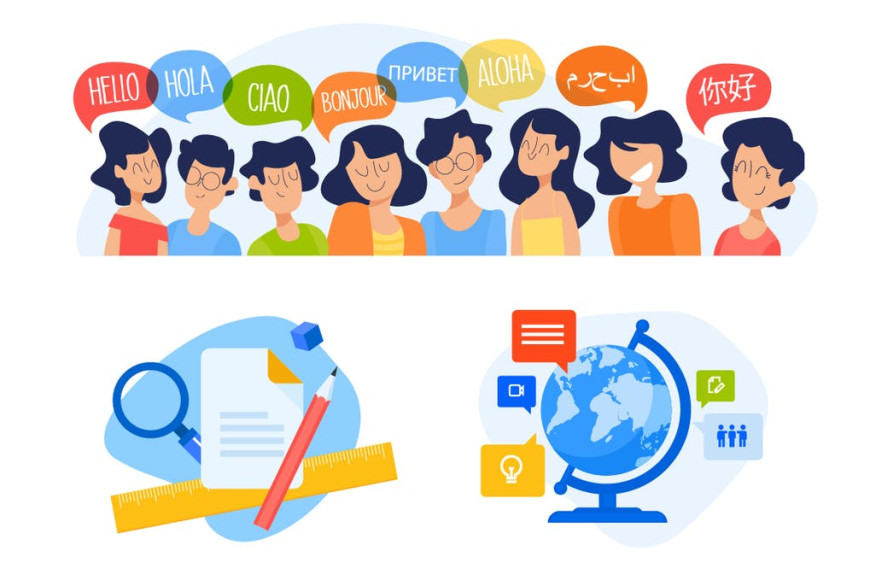Can you move to Turkey for permanent residency without knowing Turkish? How can you learn the language? Through Turkish TV series or textbooks?
Dear friends, thank you for watching my stories and reading articles with my participation. Today, I would like to continue my story about how I adapted to life in Turkey, how I started school with very little knowledge of the Turkish language.
The question of the necessity of knowing the Turkish language worries everyone who is planning to move to Turkey. Let me tell you about how I approached learning the language, the difficulties and incidents I encountered, and how I turned language learning into an enjoyable process.
Once it became clear that we would be moving to Turkey, I had two options: either attend a Russian school or a Turkish school. In both cases, I knew I would have to learn Turkish because we were not going on vacation or for a short period; we were moving there permanently.
I dismissed the option of attending a Russian school for two reasons: firstly, it was expensive (I don't remember the exact cost, but it was around 4,000-5,000 dollars per year). Secondly, I didn't need a Russian education. I had no intention of returning to Russia, so there was no point in paying such a high fee.
The only option left was a Turkish school, so I started learning the Turkish language. For this purpose, I used the textbook "Istanbul A1". It is well-structured and easy to understand, and you can learn Turkish on your own using this book.
After completing about half of the textbook, I decided to try watching TV series. The idea of learning Turkish through TV series came from my mom. She always told me how wonderful it is when you follow the plot and the twists and turns of the characters' relationships while learning new words. So I started watching "Aşk Yeniden" or "Love Again" together with her. It was my first Turkish TV series, while my mom had already watched "Magnificent Century."
The TV series "Love Again" is an exceptional comedy that worked well for language learning. I have to admit that it was difficult at the beginning (of course, after finishing only half of the A1 textbook, I didn't expect it to be easy), but luckily, there were Russian subtitles that significantly helped. Our joint discussions with my mom also proved to be very helpful.
To be honest, I didn't finish watching the entire series, but it did help me with learning the Turkish language, for which I am grateful to it. So, if you are learning Turkish, I recommend watching TV series.
I arrived in Turkey in the spring of 2018 after finishing 8th grade. In the fall, I started school, and it was quite challenging. It was a different language and a different education system.
But I didn't have the option to sit back and relax; I had to speak Turkish. Perhaps that's the key to success in language learning. If I had the opportunity to speak Russian, I wouldn't be able to string two words together in Turkish even now. That's what happens to the kids who study at the Russian school here. So there's no need to be afraid. After all, you are a foreigner. Your conversation partner understands that perfectly, so nobody will scold you for mistakes in your speech. Just speak, and every subsequent dialogue will become easier and easier.

Let's get back to school. At first, the most challenging task for me was taking dictation because I didn't know most of the words. It reminds me of a phrase from "The Prisoner of the Caucasus": "Kindly speak slower. I'm taking notes."
In any case, when I couldn't understand the dictation, I asked my classmates to share their notes, and they always helped. My problems were understood by both my classmates and teachers. I have to say that the teachers treated me well. However, I think it's more because I behave well in class, listen to the teacher, don't sleep, etc. So if they do make allowances, I don't think it's because of the language!
In the ninth grade, my teacher suggested that I should read books in Turkish, saying that it would help with my studies and learning Turkish. The first book I tackled was Franz Kafka's "Metamorphosis." Now I'm surprised myself why I chose such a challenging book. I read about 20 pages and decided to make sure I understood everything correctly by checking the summary in Russian. It turned out that I understood nothing! I thought the person found some strange insect at home, but it turned out that he himself had become one!
The second book I attempted was Paulo Coelho's "The Alchemist." I read about 60 pages, but even now, as then, I have no idea what I was reading about. So, reading books in Turkish is probably useful, but you should start when your language proficiency is already at a decent level.
Around the middle of the 10th grade (about 2 and a half years after arriving), I noticed that I was asking fewer questions and understanding teachers and classmates much better. In other words, being in a language environment took me 2 and a half years to settle into the Turkish school in terms of language. And I can say that I now have a good command of Turkish.
I read somewhere that Turkish is one of the easiest languages in the world. I agree with that. It's easy to pronounce, and there are almost no exceptions in the rules. Your vocabulary constantly expands through daily life because you're in a language environment: school, shops, cinema, plus radio and television... Whether you want it or not, you adapt and memorize. Complex linguistic structures, at first glance, become very simple and logical at some point.

Perhaps I don't grasp the poetic and figurative nuances of the language with my Turkish skills, but for studying, communicating with friends, and engaging in sports, my language level is quite sufficient.
By the way, I recently decided to start reading books in Turkish again. I've wanted to read Stephen Hawking's book about black holes for a long time. At first glance, it should be very difficult, but surprisingly, the book comes to me easily. There can be two explanations: either I have become better at the language, or it is written better and more comprehensibly. Or maybe both.
I hope my experience of learning Turkish will help you understand that not everything is as difficult as it seems!
If you have decided to move to Turkey, try using my recommendations and experience, and I am confident that everything will work out great for you too!
I hope this will be useful to children, teenagers, and their parents who are considering moving to Turkey and need proper advice and information.
Subscribe to the "Life in Turkey" YouTube channels and Instagram, where you will always find the most useful and necessary information and life hacks about life, education, and studying in Turkey

